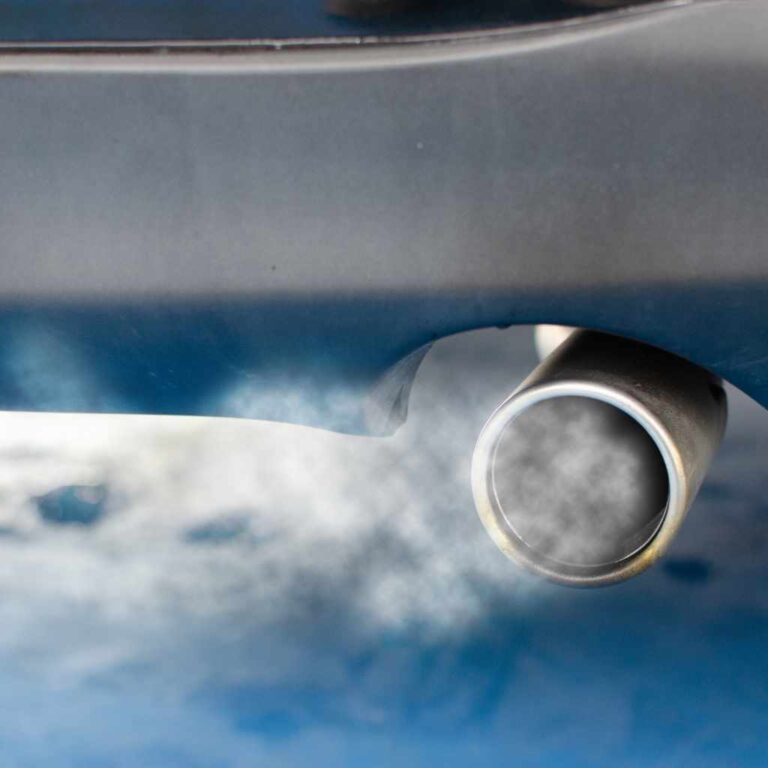Can a Car AC Compressor Be Repaired? Unlock the Power to Revive Your Cooling System!
Yes, a car AC compressor can be repaired, but it depends on the specific issue and the extent of the damage. Car AC compressors are intricate systems that can suffer from various problems, such as leaks, electrical issues, or mechanical failures.
In some cases, these issues can be repaired by replacing specific components or recharging refrigerant. However, if the damage is severe, it may be more cost-effective to replace the entire compressor. Regular maintenance and prompt attention to any AC issues can help prevent major problems and extend the life of your car’s AC compressor.
Remember to consult a certified mechanic for a proper diagnosis and repair plan.
Understanding Car Ac Compressor
The repairability of a car AC compressor largely depends on the extent of damage. Professional assessment is essential to determine whether it can be repaired or if replacement is necessary. Regular maintenance and prompt attention to issues can help prolong the lifespan of the compressor.
What Is A Car Ac Compressor?
The car AC compressor is a vital component of your vehicle’s air conditioning system. It plays a crucial role in ensuring that cool air is circulated throughout the cabin, providing relief during hot summer days. Essentially, the AC compressor is responsible for compressing the refrigerant gas and circulating it through the system to remove heat from inside the car.
How does a car AC compressor work?
How Does A Car Ac Compressor Work?
The car AC compressor operates on a basic principle: it compresses the refrigerant gas, transforming it from a low-pressure vapor to a high-pressure gas. This high-pressure gas then flows through the AC system, releasing heat and cooling down as it passes through the condenser. As it cools down, the refrigerant becomes a low-pressure liquid and enters the evaporator. Here, it absorbs heat from the surrounding air, and in the process, cools down the air that is blown into the cabin. The refrigerant then goes back to the compressor to repeat the cycle.
Common Issues With Car AC Compressors
Unfortunately, like any other car component, AC compressors can experience certain issues over time. Some of the common problems associated with car AC compressors include:
1. Lack of refrigerant: If your AC system is not blowing cold air, there could be a refrigerant leak in the compressor or other parts of the system. Insufficient refrigerant can cause the compressor to overheat and fail to cool the air effectively.
2. Compressor clutch failure: The compressor clutch engages and disengages the compressor to regulate the flow of refrigerant. If the clutch fails, the compressor may not receive power and, as a result, fail to function properly.
3. Internal component damage: Over time, internal components of the compressor like pistons, valves, or bearings may wear out or become damaged, leading to reduced compression efficiency or even compressor failure.
4. Electrical issues: Electrical problems, such as faulty wiring or sensor malfunctions, can hinder the proper functioning of the AC compressor.
5. Contamination: Contaminants like moisture, debris, or metallic particles can enter the AC system and damage the compressor, leading to poor performance or complete failure.
Remember, when you encounter any issues with your car AC compressor, it is always recommended to have it diagnosed and repaired by a professional technician familiar with automotive air conditioning systems. Timely repairs can save you from costly replacements and ensure you enjoy cool and comfortable journeys regardless of the weather outside.
Repairing Car Ac Compressor
The Possibility Of Repairing A Car Ac Compressor
When your car’s air conditioning (AC) starts malfunctioning, it’s common to wonder if the AC compressor can be repaired. The AC compressor is a vital component of the AC system that pressurizes and circulates the refrigerant, allowing cool air to be produced. Fortunately, in many cases, the AC compressor can be repaired, reducing the need for a costly replacement.
When Should You Repair A Car Ac Compressor?
Deciding to repair or replace a car AC compressor depends on several factors. One important consideration is the severity of the compressor’s damage. Minor issues like leaks or worn-out clutch bearings can often be fixed through repair. Another crucial factor is the compressor’s age and overall condition. If the compressor is relatively new and hasn’t suffered extensive damage, repair may be the ideal solution.
Furthermore, the cost of repair versus replacement should be evaluated. Repairing the AC compressor can be more budget-friendly compared to buying a completely new compressor. However, if the compressor is severely damaged or nearing the end of its lifespan, replacement might be the better long-term option.
Steps To Repair A Car Ac Compressor
To repair a car AC compressor, follow these steps:
1. Diagnose the issue: Before attempting any repair, it’s important to identify the exact problem with the AC compressor. Inspection by a professional technician or mechanic can determine the specific faults or damages.
2. Gather the necessary tools and resources: Depending on the problem, you may need various tools and replacement parts to repair the AC compressor. It’s essential to have the right equipment and materials before starting the repair process.
3. Disassemble the AC compressor: Carefully disassemble the compressor, taking note of the order and placement of each component. Ensure proper labeling to avoid confusion during reassembly.
4. Replace damaged components: Replace any damaged or worn-out components, such as seals, gaskets, clutch bearings, or valves. Properly lubricate all moving parts to optimize performance and prevent future issues.
5. Reassemble the AC compressor: Following the disassembly order, reassemble the AC compressor, ensuring that each component is securely in place. Pay close attention to proper alignment and connections.
6. Conduct a system test: Once reassembled, run a system test to ensure that the repaired AC compressor is functioning correctly. Monitor for any leaks, unusual noises, or inadequate cooling performance.
7. Recharge the refrigerant: If the AC system’s refrigerant was lost during the repair process, recharge the refrigerant to the appropriate level. This step is essential for achieving optimal cooling efficiency.
8. Regular maintenance: To prolong the lifespan of the repaired AC compressor, ensure regular maintenance, including filter replacement, refrigerant level checks, and system inspections. This maintenance will help prevent future issues and extend the life of the compressor.
By following these steps and addressing any AC compressor issues promptly, you may be able to avoid a costly replacement and enjoy cool, refreshing air during your car rides.
Alternatives To Repairing
When it comes to a malfunctioning car AC compressor, repairing might not always be the best option. There are several alternatives that can be considered, depending on the extent of the damage and the cost-effectiveness of the solution. In this section, we will explore some of these alternatives in detail.
Replacing A Car Ac Compressor
If the car AC compressor is severely damaged and repairing is not a viable option, replacing it with a new unit can be a suitable alternative. Replacing the compressor involves removing the old unit and installing a new one that matches the specifications of the vehicle. It is important to select a high-quality compressor to ensure optimal performance and longevity. Additionally, it may be necessary to replace other related components, such as the receiver-drier or expansion valve, to ensure proper functioning of the entire AC system.
Other Components That Affect The Car’s Cooling System
The car’s cooling system is not solely dependent on the AC compressor. There are other components that play a crucial role in maintaining optimal cooling performance. These components include the condenser, evaporator, and various hoses and lines that connect the different parts of the system. If any of these components are damaged or faulty, it can impact the overall cooling efficiency of the system. Therefore, it is important to inspect and address the condition of these components when dealing with AC-related issues. Regular maintenance and timely replacement of worn-out components can prevent further damage and ensure a well-functioning cooling system.
Regular Maintenance To Prevent Compressor Issues
Prevention is always better than cure, and the same holds true for car AC compressors. Regular maintenance can help prevent compressor issues and extend its lifespan. Some key maintenance tasks include:
- Regularly checking the refrigerant level and replenishing if necessary
- Cleaning or replacing the air filters to ensure maximum airflow
- Inspecting and cleaning the condenser and evaporator coils
- Monitoring the AC system for any abnormal noises or performance issues
Taking these precautionary measures can go a long way in minimizing the risk of compressor failure and the need for costly repairs or replacements.
Conclusion
To sum up, repairing a car AC compressor can be a cost-effective solution before considering a replacement. Understanding the common issues and troubleshooting steps can help identify whether a repair is feasible. Remember to consult a professional mechanic to assess the extent of the damage and determine the best course of action.
Regular maintenance and prompt repairs can prolong the lifespan of your car’s AC compressor and keep you comfortable on the road.







